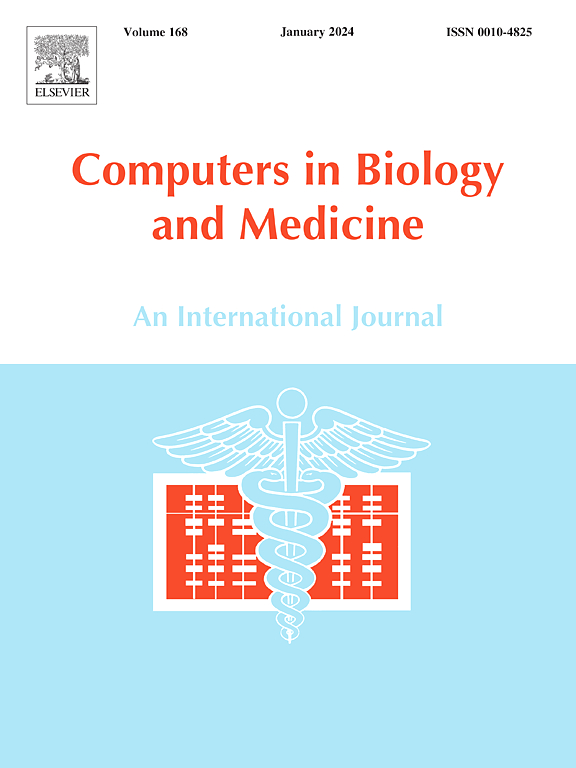PED-IA, a CDSS to support decision in pediatrics telephone triage: a crossover evaluation
IF 6.3
2区 医学
Q1 BIOLOGY
引用次数: 0
Abstract
Background
Pediatric emergency departments face overcrowding, often driven by non-urgent consultations. Telephone triage, supported by clinical decision support systems (CDSSs), offers a potential solution to improve decision accuracy and reduce unnecessary visits. However, pediatric-specific CDSSs are scarce and underexplored.
Objective
This study aimed to evaluate the impact of a pediatric-specific CDSS, PED-IA, on decision-making accuracy, confidence, and response time.
Methods
PED-IA is an ontology-based CDSS featuring a rule-driven inference engine and a dynamic interface that guides practitioners through structured clinical reasoning. A crossover study was conducted with 51 practitioners who had to answer clinical cases with and without the CDSS. Decision accuracy, confidence, and response times were measured, and satisfaction was assessed through questionnaires.
Results
The CDSS significantly improved decision accuracy from 52.9 % to 76.0 % (+23.1 %, p < 0.01) and increased confidence levels by 0.65 points on a 10-point scale (p < 0.01). Residents benefited the most, with an improved accuracy (odds ratio of 3.70 [2.15, 6.36]). Response times increased by an average of 261.8 s per case (p < 0.01). Practitioners expressed high satisfaction, with 88.2 % finding the system useful for decision-making and 84.3 % believing it could reduce stress in clinical practice.
Conclusion
The PED-IA CDSS significantly enhances triage decision accuracy and user confidence, making it a promising system for clinical practice and medical education. Practitioners viewed the system positively and identified its long-term time-saving potential. Future works should focus on refining system ergonomics and exploring hybrid models that combine data-driven and logic-based approaches to improve usability and adaptability.
支持儿科电话分诊决策的CDSS:交叉评价
儿科急诊科面临人满为患的问题,通常是由非紧急会诊引起的。在临床决策支持系统(cdss)的支持下,电话分诊为提高决策准确性和减少不必要的就诊提供了一个潜在的解决方案。然而,儿科特异性cdss是稀缺和未充分开发的。目的本研究旨在评估儿科特异性CDSS (PED-IA)对决策准确性、信心和反应时间的影响。方法speed - ia是一个基于本体的CDSS,具有规则驱动的推理引擎和动态界面,指导从业者进行结构化临床推理。对51名从业人员进行了一项交叉研究,他们必须回答有或没有CDSS的临床病例。测量决策准确性、信心和反应时间,并通过问卷评估满意度。结果CDSS将决策准确率从52.9%提高到76.0% (+ 23.1%,p <;0.01),并将10分制的置信水平提高0.65点(p <;0.01)。居民受益最大,准确性提高(比值比为3.70[2.15,6.36])。每个案例的响应时间平均增加了261.8秒(p <;0.01)。从业者表达了很高的满意度,88.2%的人认为该系统对决策有用,84.3%的人认为该系统可以减少临床实践中的压力。结论PED-IA CDSS系统显著提高了分诊决策的准确性和用户的信心,是一种很有前景的临床实践和医学教育系统。从业员积极评价该系统,并确定其长期节省时间的潜力。未来的工作应该集中在完善系统人机工程学和探索混合模型,结合数据驱动和基于逻辑的方法来提高可用性和适应性。
本文章由计算机程序翻译,如有差异,请以英文原文为准。
求助全文
约1分钟内获得全文
求助全文
来源期刊

Computers in biology and medicine
工程技术-工程:生物医学
CiteScore
11.70
自引率
10.40%
发文量
1086
审稿时长
74 days
期刊介绍:
Computers in Biology and Medicine is an international forum for sharing groundbreaking advancements in the use of computers in bioscience and medicine. This journal serves as a medium for communicating essential research, instruction, ideas, and information regarding the rapidly evolving field of computer applications in these domains. By encouraging the exchange of knowledge, we aim to facilitate progress and innovation in the utilization of computers in biology and medicine.
 求助内容:
求助内容: 应助结果提醒方式:
应助结果提醒方式:


